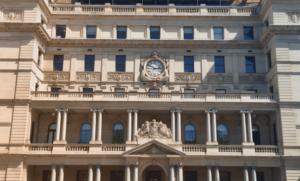January 2025 Customs/Biosecurity Updates

Important Customs & Biosecurity Updates that could impact your business.
CUSTOMS:
Engineered Stone Banned, new controls in place
- Effective 1st January 2025 a prohibition on the importation of engineered stone benchtops, panels and slabs has been implemented
- Certain sampling sizes are permitted provided they are no larger than 250mm by 250mm and 40mm thick
- Permits can be issued in certain circumstances, but must be arranged prior to shipment
- ABF have issued new CP Questions (Community Protection) to ensure any prohibited goods are identified at the time of importation
- ABF further advise Customs Brokers and Importers are to perform due diligence prior to answering CP questions, ensuring the information provided to ABF is accurate
- Further information, including due diligence steps are available: Engineered stone ban information for industry
Changes to HS Codes – Ceramic (Porcelain) Slabs
- The last 6 months of 2024 has brought about tariff concession uncertainty to ceramic tile importers who were looking to apply concessions against imported tiles
- On December 16, 2024, Australian Customs officially revoked tariff concessions from the Porcelain Tiles classification 6907.21
- Customs Tariff classification 6907.21 (Porcelain Tiles) no longer has any relevant concessions linked, the classification now applies 5% duty to all items except those covered under a free trade agreement
- Porcelain Slabs have been re-classified by ABF to chapter 6914, with relevant concessions re-assigned to this tariff.
- There are still questions around the tariff codes, for example “what defines a slab” and “what differentiates a slab and a tile”.
- Key among these questions is that Tariff 6914 (Other Ceramic Articles) is made up of two parts – “Of porcelain or china” and “other”
- ABF have keyed porcelain slab concessions to “other”, which under truest application of Tariff Interpretation Rules is incorrect, and leave questions around the motives of ABF
- It is strongly recommended any importer seeking to use concessions keyed to chapter 6914 seek a tariff advice from ABF prior to application.
ABN Fraud – Piggybacking
- Importer fraud has been a concern for many years, with ABN fraud growing significantly since the first ABF notice in 2014.
- Piggybacking is where an unscrupulous importer steals the identity of a legitimate imported to smuggle or import prohibited goods into Australia
- Recently ABF have identified piggyback consignments where steps were taken to create false web domains and email addresses to further mimic the identity of the stolen ABN
- In further changes made in 2024, Customs Brokers have mandatory requirements to perform due diligence checks on all importers prior to lodging Customs Declarations
- Further information: ABN_fraud_v2.pdf
- Piggyback example: $94 million cocaine import plot foiled in Brisbane
Free Trade Agreement Changes
- United Kingdom joined the Comprehensive and Progressive Agreement for Trans-Pacific Partnership (CPTPP) on 24th December 2024
- This change opens the scope of free trade eligible to imports from UK, expanding the allowed area for UK origin goods to multiple countries
- The CPTPP now allows free trade (subject to conditions) between Australia, Brunei, Canada, Chile, Japan, Malaysia, Mexico, Peru, New Zealand, Singapore, Vietnam, and United Kingdom
- Further Information: Comprehensive and Progressive Agreement for Trans-Pacific Partnership
- Effective 1st January 2025, phasing duty rates for the following agreements reduced:
- India-Australia Economic Agreement (ECTA)
- Regional Comprehensive Economic Partnership Agreement (RCEP)
- Australian, United Kingdom and Northern Ireland (A-UKFTA)
- Further information on Free Trade Agreements: Free Trade Agreements
BIOSECURITY:
Illegal Logging Reforms
- Importers due diligence requirements will change on 3rd March 2025
- Fundamental steps will remain unchanged, however there are key changes to some steps:
- The three risk assessment methods in the current Regulation will be replaced with two distinct risk assessment pathways for:
- Certified timber and timber products/raw logs
- Non-certified timber and timber products/raw logs.
- There will be a new repeat due diligence exception. This will allow you to rely on a previous risk assessment and risk mitigation measures if you import or process the same timber, timber products, or raw logs from the same supplier within a 12 month period.
- There will be an exemption for processors who are also the person/entity who harvested the raw log.
- Importers of timber or timber products are encouraged to review the new requirements to ensure you remain compliant.
- Please note, timber product include paper, cardboard, furniture, other wooden articles and other articles manufactured from felled timbers
- Further Information: Illegal Logging E-Update 49: December 2024 – illegal logging legislative reform
BMSB newly manufactured goods
- Exemptions apply on BMSB requirements for applicable goods manufactured on or after 1st December, subject to conditions
- Further Information: Frequently asked questions regarding common Brown Marmorated Stink Bug (BMSB) import scenarios – DAFF
- Additional documentation in the form of a Manufacturer’s Declaration is required: Default Word template
- Further Information on BMSB: Seasonal measures for Brown marmorated stink bug (BMSB) – DAFF
- Approved Offshore Service Providers change regularly. It is recommended the approved list is regularly monitored: Pre-border Biosecurity Treatment Providers – DAFF
Cost Recovery implemented for post inspection in-office management activities (Imported Foods)
- Effective 3rd February 2025, all post-inspection, in-office sample management activities will incur a service fee
- Charging of said fee is in line with Imported Food Regulations 2019
- A rate of $39 per 15 minutes or part thereof applies
- Further Information: IFN 08-24: Commencement of the imposition of fees for post-inspection in-office imported food sample management activities – DAFF
